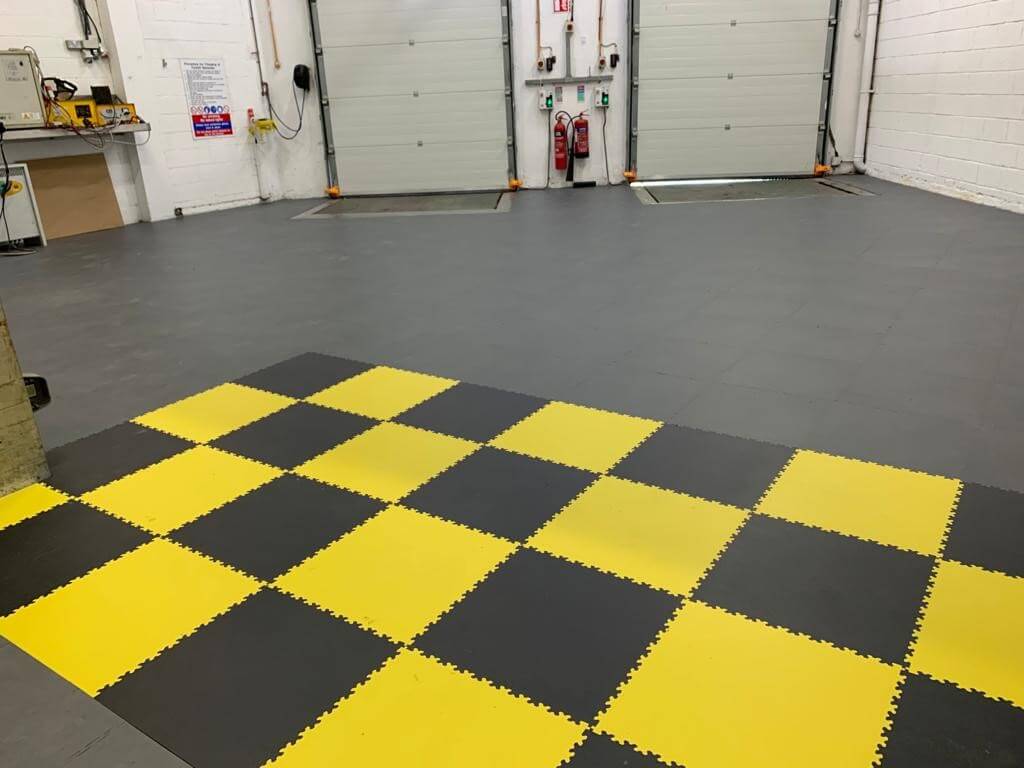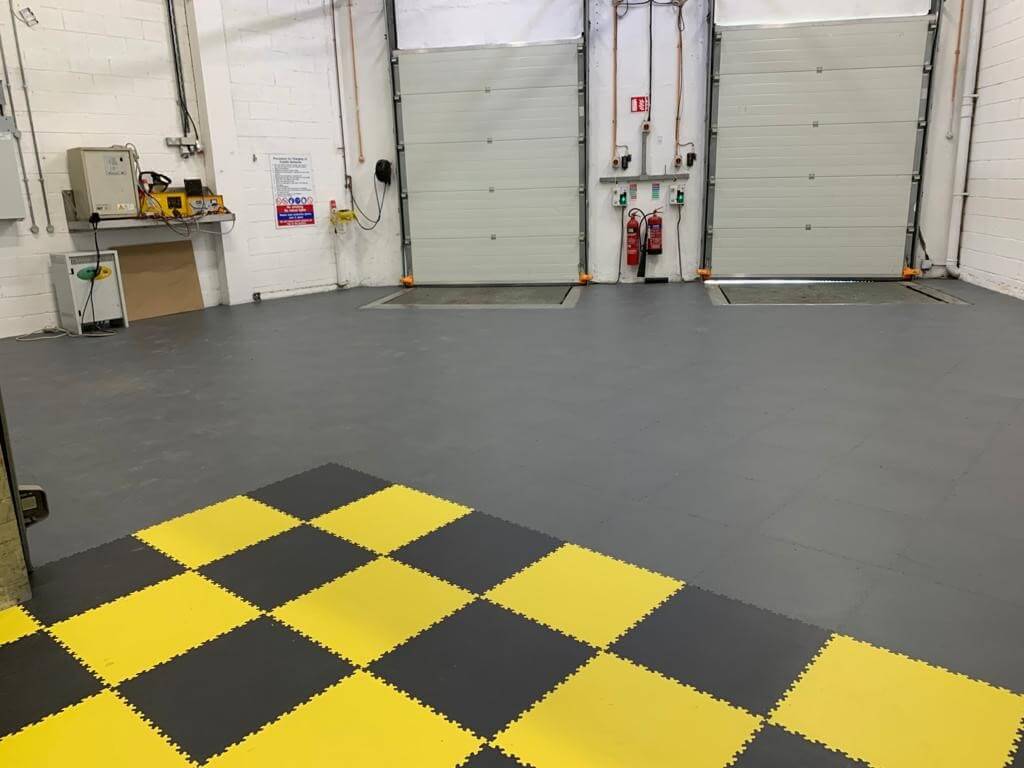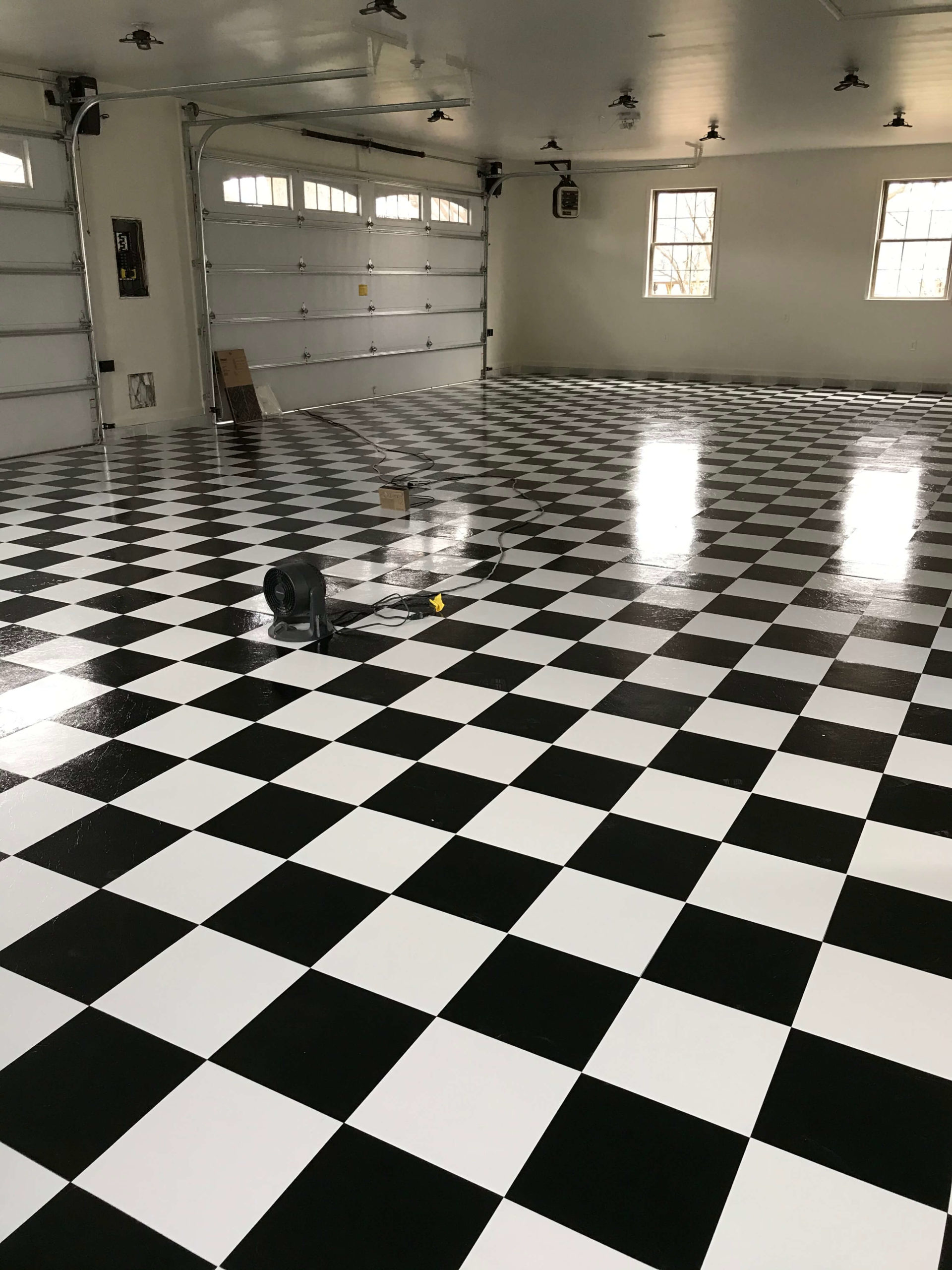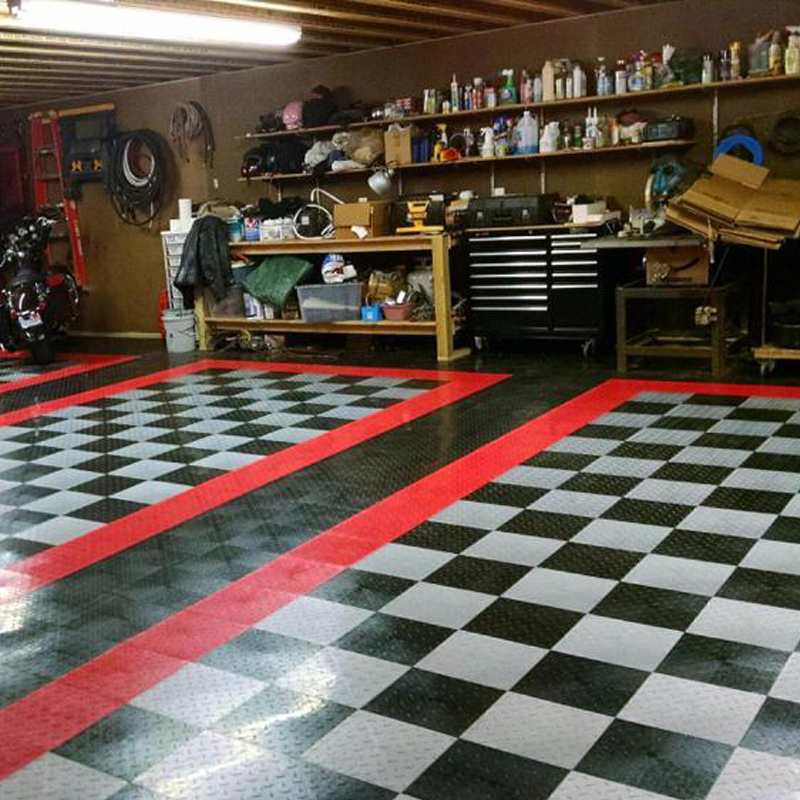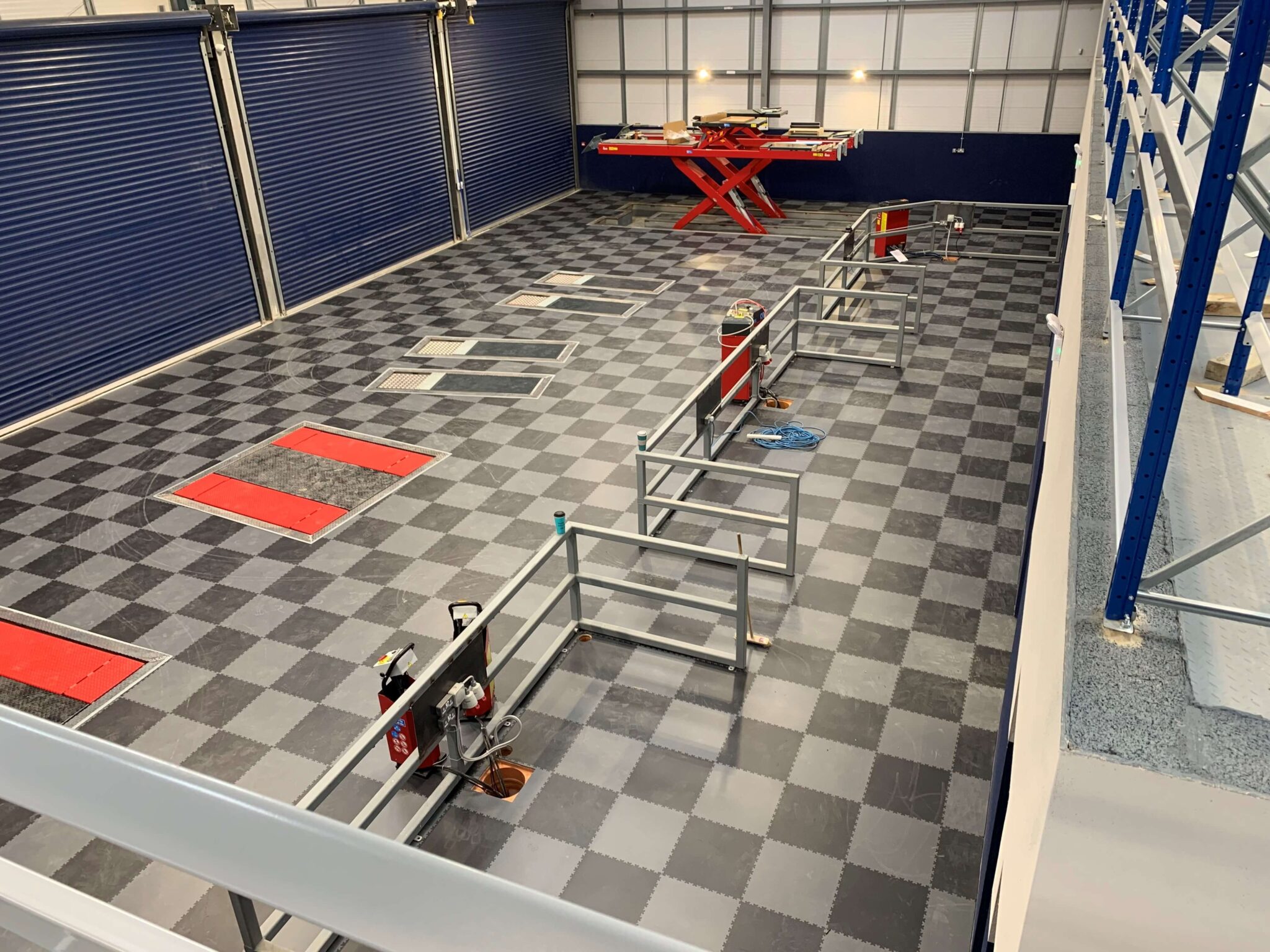Choosing the Right Flooring for Your Garage Workshop
When you’re setting up a garage workshop, the flooring choice is critical. It not only affects the look of the space but also influences functionality, durability, and safety. I’ve spent a lot of time researching the best options, and choosing the right flooring is one of the most important decisions you’ll make to ensure your workshop meets your needs. Here’s what I’ve learned about selecting the best flooring for a garage workshop.
- Functionality Should Be Your Top Priority When choosing flooring for your garage workshop, functionality should be your number one consideration. Think about how you’ll use the space. Are you working on heavy-duty projects that involve heavy equipment? Or is it more of a hobby space where you tinker with smaller tools? The flooring needs to withstand whatever you plan to throw at it. For heavy-duty use, opt for something highly durable and resistant to impacts.
- Consider Comfort and Fatigue If you’re going to spend hours standing and working on projects, comfort is key. Standing on hard surfaces like concrete for long periods can be tough on your feet, legs, and back. You might want to consider cushioned flooring options or modular tiles that provide more comfort. Rubber or vinyl flooring could also offer the shock absorption you need to minimize fatigue.
- Think About Durability and Longevity Garage workshops see a lot of wear and tear. Your floor needs to be tough enough to handle dropped tools, heavy machinery, and constant foot traffic. I recommend looking into materials like epoxy or polyurethane, which are highly durable and can extend the life of your flooring. Concrete is another long-lasting option, but it may need sealing to ensure it remains resilient.
- Evaluate Your Floor’s Maintenance Needs Let’s be honest, a workshop floor can get dirty quickly—whether from sawdust, oil, or spilled chemicals. Having a floor that’s easy to clean is essential for keeping your workspace functional. Consider flooring that’s low-maintenance and resistant to staining. Epoxy, for example, wipes clean easily, while rubber mats can be hosed down.
- Safety Shouldn’t Be Overlooked When working with tools and heavy machinery, safety is always a concern. Flooring that provides slip resistance is critical, especially in a garage where spills or wet conditions are likely. Textured epoxy or rubber flooring with non-slip properties can help prevent accidents. You also want to make sure the floor can handle spills without becoming slick.
- Aesthetic Appeal Let’s not forget about the look of your workshop. While functionality and durability are top priorities, you don’t have to sacrifice aesthetics. Flooring like polished concrete, epoxy coatings with decorative flakes, or interlocking tiles can give your garage workshop a polished, professional look. A well-designed space makes working in your garage more enjoyable.

Concrete vs. Epoxy: Which is Better for Your Workspace?
If you’re trying to decide between concrete and epoxy for your garage workshop floor, you’re not alone. Both options have their pros and cons, and which one you choose depends on your specific needs. I’ve had experience with both, and here’s what I’ve found to help you weigh your options.
Durability: How Do They Compare? When it comes to durability, both concrete and epoxy are solid choices. Concrete is incredibly tough and can handle heavy machinery and dropped tools without showing wear. However, untreated concrete can crack over time, especially in high-traffic areas. Epoxy, on the other hand, is a resin that’s applied on top of the concrete, adding a layer of protection. It’s resistant to impacts, chemicals, and even moisture, making it a great option if you want to enhance the durability of your workshop floor.
Epoxy is Easier to Clean One major advantage of epoxy over bare concrete is its ease of maintenance. Epoxy creates a smooth, non-porous surface that resists stains from oil, chemicals, and spills. It’s easy to wipe clean or mop up any mess. Concrete, especially if it’s not sealed, can absorb stains, making it harder to clean and requiring more effort to maintain. If you’re someone who prefers a clean, polished workshop, epoxy may be the better choice.
Cost Considerations Cost is always an important factor when choosing flooring. Concrete is the more affordable option, especially if you already have a concrete slab in your garage. You might just need to clean and seal it, which is a minimal investment. Epoxy, on the other hand, comes with additional costs for materials and installation, especially if you go for a professional-grade finish. However, epoxy’s added durability and easier maintenance may be worth the extra cost in the long run.
Aesthetics: Customization with Epoxy If you care about how your garage workshop looks, epoxy offers more options for customization. You can choose from a range of colors, add decorative flakes, or even opt for a metallic finish. This allows you to create a workshop that looks as good as it functions. Concrete, unless polished, tends to have a more industrial, unfinished look, which can still work depending on the aesthetic you’re going for.
Installation Process Concrete is straightforward. If your garage already has a concrete floor, it may just need sealing or polishing to make it suitable for a workshop. Epoxy, however, requires a more involved installation process. The concrete needs to be cleaned and prepped before the epoxy can be applied, and this can take time. Professional installation is recommended for the best results, which adds to the cost and complexity.
Which is Right for You? Ultimately, the choice between concrete and epoxy comes down to how you use your garage workshop. If you’re looking for an affordable, no-fuss option, concrete might be sufficient. However, if you want a floor that’s durable, easy to clean, and visually appealing, epoxy is likely the better choice. I lean toward epoxy for the added benefits, but if you’re on a budget or prefer a simpler look, concrete can still get the job done.
Durability and Safety: Key Factors for Workshop Floors
When designing a garage workshop, durability and safety are two of the most critical factors to consider for your flooring. Whether you’re working with power tools, heavy equipment, or even just hand tools, you need a floor that’s tough enough to withstand the wear and tear of your projects while keeping you safe. Here’s why durability and safety matter and how to ensure you get the right floor for your needs.
The Importance of Durability Garage workshops sees heavy-duty action, from dragging machinery to dropped tools and constant foot traffic. You want a floor that can handle it all without cracking, chipping, or showing wear. Durable flooring materials like epoxy, concrete, or polyurethane coatings are designed to withstand impacts and high loads, which is essential if you’re working with heavy equipment or tools.
Impact Resistance One of the key aspects of durability is impact resistance. If you drop a tool or piece of equipment, you don’t want your floor to chip or crack. Epoxy floors are highly resistant to impacts, making them ideal for workshops. Similarly, sealed or polished concrete can handle a lot of abuse without showing signs of damage.
Chemical Resistance Safety in a garage workshop also means protecting your floor from chemicals, oils, and solvents. Epoxy floors are highly resistant to chemical spills, which is a major benefit if you’re working with automotive fluids or other substances that could damage other types of flooring. Concrete can also be sealed for chemical resistance, but it may stain or erode over time if not properly treated.
Non-Slip Surfaces for Safety Slip resistance is another crucial factor, especially in a workshop where spills can happen. Working with power tools or heavy objects on a slippery floor is dangerous. Flooring with a non-slip texture, like epoxy with added aggregates or rubber mats, can reduce the risk of accidents. Concrete can also be textured for added grip, but make sure to check that it’s sealed to avoid slipping when wet.
Fire Resistance In some workshops, fire safety is a concern, especially if you’re working with flammable materials or welding. Concrete floors are non-combustible, making them a safe option. Epoxy is also resistant to high temperatures, but if fire safety is a top concern, you may want to ensure that the specific epoxy you choose is rated for heat resistance.
Choosing the Best Option for Durability and Safety Ultimately, the right choice for you depends on how much abuse your floor will take and the type of safety concerns you have. For maximum durability and safety, I recommend epoxy flooring with a non-slip additive, as it checks all the boxes in terms of impact resistance, chemical protection, and slip prevention. Concrete is also a solid choice, especially if it’s sealed or textured for added safety.
Slip-Resistant Flooring Options for Workshops
Safety in a workshop is paramount, and having slip-resistant flooring is one of the most effective ways to prevent accidents. Whether you’re dealing with spilled oil, water, or sawdust, a slippery floor can turn your workshop into a hazardous environment. After exploring different flooring options for my garage workshop, here’s a breakdown of the best slip-resistant flooring materials you can choose.
Textured Epoxy Coatings Epoxy flooring can be customized with additives that make it slip-resistant. This is one of the best solutions for workshops where spills or moisture are common. You can add aggregates like sand or polymer beads to the top layer of epoxy, creating a slightly textured surface that provides extra grip. I’ve found that this option is both functional and stylish, as the texture is subtle enough not to detract from the sleek look of the epoxy.
Rubber Flooring for Ultimate Grip If you want a flooring option that provides maximum slip resistance, rubber flooring is hard to beat. Rubber floors or mats are naturally slip-resistant, even when wet. They also provide some cushioning, which can be easier on your joints if you’re standing for long periods. This type of flooring is ideal for workshops where water or oil spills are frequent, and you need a safe surface to work on.
Interlocking PVC Tiles Interlocking tiles made from PVC or vinyl can offer good slip resistance, especially if they have a textured surface. These tiles are easy to install and replace if one gets damaged, and they provide a cushioned surface that’s more comfortable to work on than concrete. I like that you can get tiles with different levels of texture, depending on how much slip resistance you need.
Sealed and Textured Concrete Concrete is often used in garage workshops, but untreated concrete can be quite slippery when wet. To improve slip resistance, you can have the concrete sealed and textured. Some people opt for broom-finished concrete, which has a textured surface to improve grip. Another option is to add non-slip additives to the concrete sealant. This is a cost-effective way to make your existing concrete floor safer without completely overhauling it.
Vinyl Flooring with a Slip-Resistant Finish Vinyl flooring is another good option for slip resistance in a workshop. Look for vinyl that comes with a slip-resistant finish or texture. Vinyl is also easy to clean, making it a good choice for areas where you might have spills or debris. It’s not as durable as epoxy or concrete, but if safety is your main concern, vinyl can provide a softer, safer surface to work on.
Choosing the Right Slip-Resistant Flooring for Your Needs When deciding on slip-resistant flooring, consider the types of spills or hazards you’re likely to encounter in your workshop. For heavy-duty use and maximum durability, I recommend going with textured epoxy or sealed concrete with non-slip additives. For workshops with lighter use, interlocking tiles or rubber mats may be more than sufficient to keep your space safe and functional.
Budget-Friendly Flooring Solutions for Garage Workshops
If you’re like me, setting up a garage workshop is exciting—but it can also get expensive. Flooring is one area where you want to be smart about your budget, but that doesn’t mean you have to sacrifice quality or durability. I’ve explored a variety of budget-friendly flooring options that work well for garage workshops, and here’s what I’ve found to be the best options that won’t break the bank.
Concrete Sealing: A Simple and Affordable Solution If you already have a concrete floor in your garage, sealing it is one of the most affordable options. A concrete sealer is easy to apply and provides a protective layer that helps prevent stains and damage. It also gives the floor a slight sheen, making it easier to clean. While it doesn’t add any cushioning or comfort, sealing your concrete is a budget-friendly way to protect the surface and extend its life.
Rubber Mats: Inexpensive and Versatile Rubber mats are a great option if you’re looking for something affordable and functional. They’re typically available in large rolls or interlocking tiles, which you can lay over your existing floor. Rubber mats provide good cushioning and slip resistance, making them ideal for workshops where you’re standing for long periods. Plus, they’re easy to clean and replace if needed. You can place them in high-traffic areas or just where you need extra comfort.
Vinyl Flooring: Affordable and Easy to Install Vinyl flooring is another cost-effective solution that’s easy to install. Many vinyl options come in planks or tiles with adhesive backs, so you don’t need a lot of specialized tools to install them yourself. Vinyl can mimic the look of more expensive flooring materials, and it’s resistant to moisture and stains, which makes it great for garage workshops. It’s not as durable as epoxy or concrete, but for light to medium use, it can get the job done without costing a fortune.
Interlocking Foam Tiles For those who want an ultra-budget-friendly option, interlocking foam tiles can be a great choice. They’re soft, comfortable to stand on, and provide decent insulation if your garage floor gets cold. Foam tiles are ideal for workshops where you might be working on lighter projects, but they’re not suitable for heavy-duty use. However, they’re easy to replace if damaged and can be installed in just minutes, making them a quick and cheap flooring solution.
Painted Concrete Floors Another inexpensive option is to paint your concrete floor with a concrete floor paint or epoxy paint. This gives the floor a fresh, clean look and provides some protection against stains. While it won’t be as durable as a full epoxy coating, it’s a great way to spruce up the space without spending a lot of money. Plus, it’s a DIY project that you can complete over a weekend.
Balancing Budget and Quality When choosing budget-friendly flooring for your garage workshop, it’s important to balance cost with quality. You don’t want to end up replacing the floor in just a few years because you went too cheap. I recommend opting for rubber mats or sealed concrete for durability, but if you’re working on lighter projects, vinyl or foam tiles can work just as well. Just be sure to consider how you’ll use the space so that your flooring holds up over time.
Easy-to-Clean Flooring Materials for Garage Workspaces
One of the realities of having a garage workshop is that it can get messy fast. Between sawdust, oil spills, and debris from projects, you want flooring that’s easy to clean and maintain. After testing different options in my workspace, I’ve found that some materials are better than others when it comes to keeping things tidy. Here are some of the best easy-to-clean flooring materials for garage workshops.
Epoxy: The King of Low-Maintenance Flooring Epoxy flooring is my top recommendation when it comes to easy cleaning. Its smooth, non-porous surface resists stains from oils, chemicals, and spills, making it simple to wipe up messes. A quick sweep or mop is usually all it takes to get the floor looking pristine again. Plus, epoxy floors don’t trap dust or dirt, which is a major advantage in a busy workshop.
Sealed Concrete If you have a concrete floor, sealing it is one of the best ways to make it easier to clean. Unsealed concrete can absorb stains and become difficult to clean, but sealing creates a protective barrier. Sealed concrete can be swept or mopped easily, and spills won’t soak into the surface as they would with untreated concrete. It’s not quite as smooth as epoxy, but it’s a solid option for easy maintenance.
Rubber Flooring Rubber flooring is another material that’s simple to clean, especially if you go with large mats or tiles. Rubber naturally resists water and spills, and most messes can be cleaned up with a mop or hose. I’ve found rubber mats particularly useful for high-traffic areas where spills are common. Just pick them up and rinse them off when needed, and they’re good to go.
Vinyl Flooring Vinyl flooring is known for being low-maintenance and easy to clean. It doesn’t stain easily, and any mess can typically be wiped up with a cloth or mop. For workshops where you’re dealing with lighter messes, vinyl provides a smooth surface that’s resistant to dirt and dust. However, be aware that sharp objects or heavy impacts can damage vinyl, so it’s not ideal for heavy-duty work.
Painted Concrete If you’re on a budget, painting your concrete floor with concrete floor paint or epoxy paint can make it much easier to clean. The paint provides a smooth surface that repels stains and prevents dust from sticking. While it won’t be as durable as epoxy or sealed concrete, painted floors are still a good option if you want something low-maintenance without spending a lot.
Choosing the Right Flooring for Cleanliness When it comes to keeping your workshop clean, the right flooring can make all the difference. I recommend epoxy or sealed concrete for the easiest maintenance, especially if your workshop gets messy with oils or heavy debris. If you’re looking for a budget-friendly option, rubber mats or vinyl can also do the trick. Just be sure to choose a material that fits your needs and the type of work you’ll be doing in the space.
DIY Flooring Installation vs. Professional Services for Workshops
One of the big decisions you’ll face when upgrading your garage workshop is whether to install the flooring yourself or hire a professional. As someone who loves a good DIY project, I’ve weighed both options carefully. While both have their pros and cons, here’s a breakdown to help you decide which is the right choice for you.
DIY Installation: Cost-Effective but Time-Consuming One of the biggest advantages of DIY flooring installation is the cost savings. You can save hundreds, if not thousands, by installing your flooring. DIY kits for epoxy or interlocking tiles are readily available and come with all the materials you need to get started. However, be prepared to invest a significant amount of time in the process. Depending on the size of your garage and the type of flooring, it could take anywhere from a weekend to several days to complete the job.
Challenges of DIY Flooring While DIY installation can be rewarding, it also comes with its own set of challenges. For example, installing epoxy flooring requires careful preparation and timing. If the concrete isn’t properly cleaned or the epoxy isn’t applied evenly, you could end up with bubbles, peeling, or uneven surfaces. I’ve found that while some flooring types, like rubber mats or interlocking tiles, are fairly easy to install, others, like epoxy or polished concrete, can be more complex.
Professional Installation: Guaranteed Quality Hiring a professional to install your flooring may cost more upfront, but it comes with the peace of mind that the job will be done right. Professionals have the experience and equipment needed to ensure the flooring is installed correctly and efficiently. If you’re opting for epoxy or polished concrete, I would recommend going with a professional to ensure the best possible finish. A professional job will also last longer and often comes with a warranty.
Time and Convenience Another advantage of hiring a professional is the time saved. Instead of spending your weekend figuring out how to lay down flooring, you can focus on other parts of your workshop setup. Professionals can often complete the job in a fraction of the time it would take to do it yourself. If you’re short on time or just don’t want the hassle, hiring a pro is the way to go.
Weighing the Costs While professional installation is more expensive, it can be a worthwhile investment if you want high-quality, long-lasting results. However, if you’re comfortable with a DIY project and want to save money, doing it yourself can still yield good results as long as you’re prepared to put in the work. Just be sure to consider the long-term durability of your flooring and whether the DIY route will save you money in the long run.
Which Option is Right for You? If you’re a hands-on person who enjoys DIY projects, and you have the time to invest, installing your own workshop flooring can be a cost-effective and rewarding experience. On the other hand, if you want a polished, professional finish and don’t mind spending extra, hiring a professional ensures a high-quality result. In my experience, it’s worth weighing the complexity of the flooring material and your own skill level before making a decision.
Solid White Peel & Stick Vinyl Floor Tile-Garage Flooring 12″x12″ square
EAGLE PRO Garage Floor Tiles – High Quality Flooring for Showrooms, Gyms, Events, Sheds, Workshops
Garage Flooring Workshop Flooring R-Tek Manufacturing
Related Posts:



